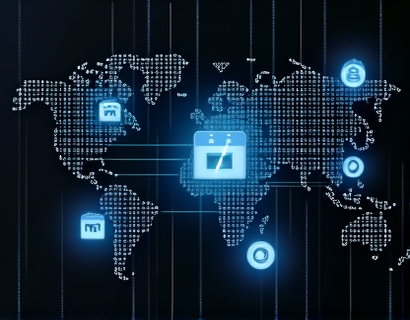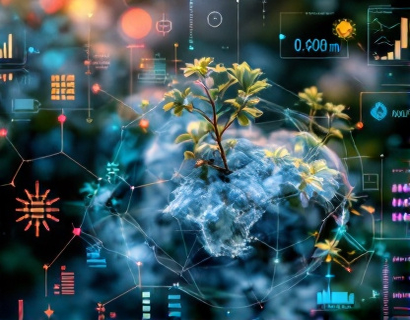Autonomous AI Agents: Streamlining Continuous Objectives for Business and Personal Productivity Boost
In the rapidly evolving landscape of business and personal productivity, the integration of Autonomous AI Agents stands out as a pivotal advancement. These intelligent systems are designed to operate independently, managing a wide array of tasks and objectives without human intervention. By doing so, they enable businesses and individuals to focus on their core activities, thereby gaining a significant competitive edge. This article delves into the transformative impact of AI-driven solutions on process streamlining and efficiency enhancement, offering practical strategies to maximize productivity in a fast-paced environment.
The concept of Autonomous AI Agents is rooted in the broader field of Artificial Intelligence, specifically in the subfield of Autonomous Systems. These agents are programmed to perform tasks that traditionally required human input, but with the added capability of learning and adapting to new situations. The primary goal is to automate repetitive and time-consuming tasks, allowing users to allocate their time and resources more effectively.
Understanding Autonomous AI Agents
To fully appreciate the benefits of Autonomous AI Agents, it is essential to understand their core functionalities. These agents are equipped with advanced algorithms and machine learning models that enable them to process vast amounts of data, identify patterns, and make decisions. They can be deployed in various domains, from scheduling and project management to customer service and data analysis.
One of the key features of Autonomous AI Agents is their ability to operate continuously. Unlike human workers who require breaks and have limited working hours, these agents can work around the clock, ensuring that tasks are completed efficiently and promptly. This continuous operation is particularly beneficial for businesses that operate across multiple time zones or require round-the-clock monitoring.
Benefits for Businesses
For businesses, the integration of Autonomous AI Agents can lead to substantial improvements in productivity and operational efficiency. One of the most immediate benefits is the reduction in manual workload. Tasks such as data entry, report generation, and routine monitoring can be automated, freeing up employees to focus on higher-value activities that require human creativity and critical thinking.
Moreover, Autonomous AI Agents enhance decision-making processes. By analyzing large datasets and providing insights in real-time, these agents help businesses make informed decisions quickly. This is particularly valuable in dynamic markets where timely decisions can mean the difference between success and failure. For instance, in supply chain management, AI agents can predict demand fluctuations and adjust inventory levels accordingly, reducing costs and improving customer satisfaction.
Case Study: Supply Chain Optimization
A practical example of the benefits of Autonomous AI Agents can be seen in supply chain optimization. A retail company implemented an AI-driven agent to manage its inventory and logistics. The agent continuously monitored sales data, supplier lead times, and market trends. Based on this data, the agent automatically placed orders, adjusted stock levels, and optimized delivery routes. As a result, the company reduced its inventory costs by 15% and improved delivery times by 20%, significantly enhancing its overall efficiency.
Benefits for Individuals
Individuals can also reap the rewards of Autonomous AI Agents. In a personal context, these agents can help manage daily tasks and objectives, leading to a more organized and productive lifestyle. For example, an AI agent can handle scheduling appointments, setting reminders, and even managing personal finances. This delegation of tasks allows individuals to focus on their professional and personal goals without the burden of mundane responsibilities.
Additionally, Autonomous AI Agents can provide personalized recommendations based on user behavior and preferences. Whether it's suggesting the best time to exercise, recommending books to read, or optimizing travel routes, these agents enhance the quality of life by making informed suggestions that save time and effort.
Personal Productivity Example
Consider an individual who struggles with time management and often finds themselves overwhelmed with tasks. By using an AI agent to manage their calendar and to-do list, this person can streamline their daily activities. The agent can prioritize tasks based on urgency and importance, send reminders, and even delegate tasks to others if necessary. This not only reduces stress but also increases the individual's ability to focus on more significant personal and professional projects.
Implementing Autonomous AI Agents
To harness the power of Autonomous AI Agents, businesses and individuals need to follow a strategic approach. The first step is to identify the tasks and objectives that can be automated. This involves a thorough analysis of current workflows and processes to pinpoint areas where AI can add the most value. For businesses, this might include repetitive administrative tasks, while for individuals, it could be managing daily schedules and reminders.
Once the tasks are identified, the next step is to select or develop an AI agent that meets the specific needs. There are numerous AI platforms and tools available, ranging from simple task managers to advanced analytics agents. It is crucial to choose a solution that is scalable, secure, and integrates seamlessly with existing systems. For instance, a business might opt for a cloud-based AI agent that can be easily scaled as the company grows, while an individual might prefer a user-friendly app that can be accessed from multiple devices.
Integration and Customization
Integrating an AI agent into existing workflows requires careful planning and customization. The agent should be configured to understand the specific context and requirements of the tasks it will handle. This might involve training the AI with relevant data, setting up rules and parameters, and establishing clear communication channels. For example, a business might need to integrate its CRM system with the AI agent to ensure seamless data flow and accurate task management.
Customization is key to ensuring that the AI agent operates effectively. Users should be able to adjust settings, prioritize tasks, and provide feedback to improve the agent's performance over time. Continuous monitoring and optimization are essential to maintain high levels of efficiency and accuracy.
Challenges and Considerations
While the benefits of Autonomous AI Agents are significant, there are also challenges and considerations that need to be addressed. One of the primary concerns is the initial investment in technology and training. Implementing AI solutions can require upfront costs, including software purchases, system integration, and employee training. However, these costs are often offset by the long-term savings and productivity gains.
Another challenge is the potential resistance from employees who may fear job displacement. It is crucial for organizations to communicate the role of AI agents as tools that augment human capabilities rather than replace them. By emphasizing the collaborative nature of AI, businesses can foster a positive adoption culture.
Ethical and Privacy Concerns
Ethical and privacy concerns are also paramount when deploying AI agents. These systems often handle sensitive data, and ensuring data security and compliance with regulations is essential. Organizations must implement robust security measures and adhere to data protection laws to build trust and avoid legal issues. Transparency in how AI agents operate and make decisions is also crucial to maintain user confidence.
Furthermore, there is a need to address biases in AI algorithms. AI agents learn from the data they are trained on, and if this data contains biases, the agent's decisions can be skewed. Regular audits and updates to the training data can help mitigate these risks and ensure fair and accurate outcomes.
Future Trends and Innovations
The field of Autonomous AI Agents is rapidly evolving, with ongoing research and development leading to new innovations. One area of focus is the integration of AI with other emerging technologies such as the Internet of Things (IoT) and 5G networks. This convergence can enable more intelligent and responsive agents that can interact with physical devices and environments in real-time.
Another trend is the development of more sophisticated natural language processing (NLP) capabilities. AI agents that can understand and respond to human language more naturally will enhance user interactions and make these systems more accessible. This is particularly important for personal AI assistants that need to provide a seamless and intuitive user experience.
Enhanced Learning and Adaptation
Future AI agents will likely feature advanced machine learning algorithms that allow for continuous learning and adaptation. These agents will not only perform tasks based on predefined rules but will also learn from new data and user feedback, improving their performance over time. This self-improving capability will make AI agents even more valuable and indispensable in both business and personal settings.
Additionally, the rise of explainable AI (XAI) will address the "black box" nature of many AI systems. XAI aims to make AI decisions more transparent and understandable, which is crucial for building trust and ensuring accountability. As AI agents become more explainable, users will be better equipped to understand and trust the recommendations and actions taken by these systems.
Conclusion
Autonomous AI Agents represent a transformative force in the realm of productivity and efficiency. By automating routine tasks and providing intelligent support, these agents enable businesses and individuals to focus on their core objectives and achieve greater success. The practical strategies outlined in this article, from identifying tasks for automation to integrating and customizing AI solutions, provide a roadmap for leveraging the full potential of AI agents. As the technology continues to advance, the future looks promising for those who embrace this innovative approach to productivity.











































